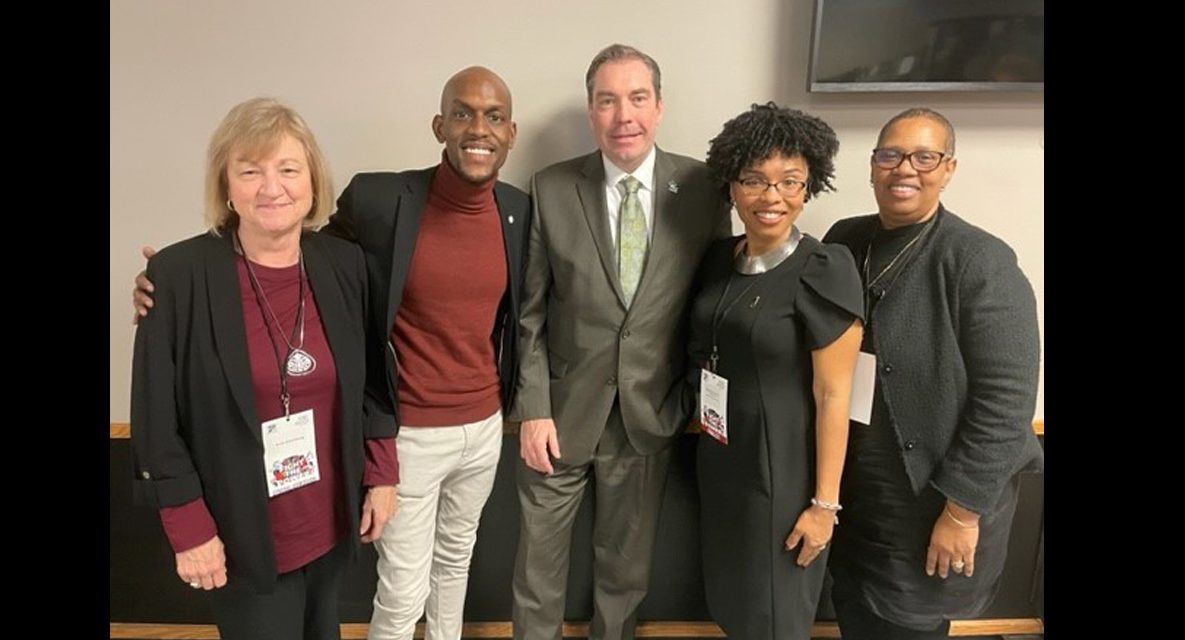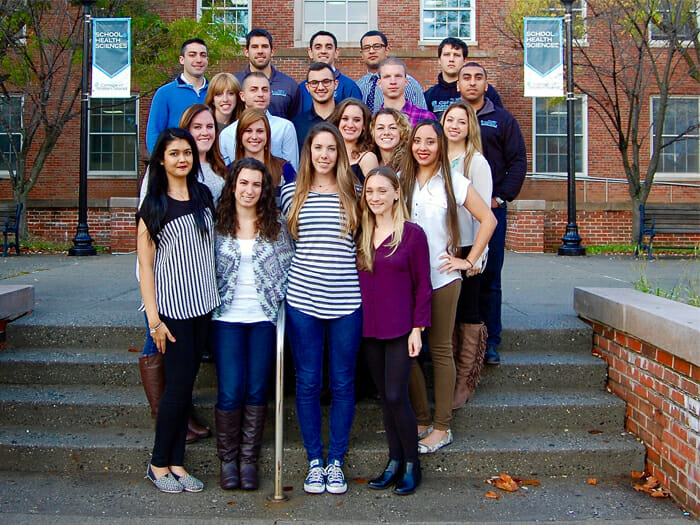Three students from CSI’s EdD in Community-Based Leadership’s Cohort 2 were recently co-presenters in a Workshop Forum titled “Increasing and Sustaining the Black Presence at CUNY” at the New York State Association of Black, Puerto Rican, Hispanic, and Asian Legislators Conference in Albany, NY. They shared their experiences in the Doctoral Program and in their leadership journeys. The co-presenters were leaders of the CUNY Association of Black Faculty and Staff, Dr. Brenda Greene (Medgar Evers College) and Dr. Anthony Browne (Hunter College).
According to Dr. Ruth Silverberg, Director of the EdD in Community-Based Leadership Program and Associate Professor in the CSI School of Education Cohort 2 students are currently in their fifth semester of the three-year program. The three Cohort 2 presenters were Jamell Henderson, Debbie-Ann Paige, and Shemeka Brathwaite, and the presentation was collaboratively conceived, prepared, and coordinated by their nine-member cohort.
One of those three students, Jamell Henderson, who holds four CUNY degrees and is working on his fifth at CSI, noted that the presentation “was a vision combined, as I wanted to share the importance of sharing our stories as Black doctoral candidates, living and surviving the great City of New York, and with the work of the CUNY Association of Black Faculty and Staff, we came together to talk about the importance of overall Black sustainability and presence in our CUNY.”
“According to research,” Henderson continued, “Black people are 21% of the population of the City, yet we only make up 12% of CUNY’s faculty. On some campuses, Black faculty are less than 6%. I wanted to call on CUNY to share our Black stories authentically, which will increase enrollment as our stories are reachable and encouraging versus those who are more academically astute in their progress toward their degrees. This panel called on CUNY to fund more programs like this that will open doors for everyday Black and Brown New Yorkers to make their voices heard, and their contributions are greatly served for our city and state in the future.”
When looking back on the presentation, which was his second at the NYSABPRHAL Caucus, Henderson recalled that the experience was empowering because of the number of students in attendance, as well as people from across New York State. “I felt good personally sharing my story along with the phenomenal cohort members, we have enrolled more Black students in [the EdD program] who are interested in being a part of this doctoral journey,” he added.
As far as his membership in Cohort 2, Henderson states that the group “is like a family; we have our great moments and we have our challenges, yet we are uniquely focused on seeing each other have ‘Dr.’ in front of our names in 2024. We lean on each other and do our best to bring joy and our authenticity at all times as we make sure the voices and presence of Black people are in that room; from challenging our professors in including race to providing strong authors to include in the research, we are determined to break down the door for Black and Brown communities that will be able to do the work in being in service to the people and prove that you can achieve doctoral status while living in this great city.”
The EdD in Community-Based Leadership program launched in 2020 with its first cohort. It will be admitting its fourth, this month. Dr. Silverberg explained that the program was, “initiated with the intention of supporting development of leadership of cross-sector coalitions in support of the well-being of young people, with an emphasis on school-based leadership, particularly in community schools. Since then, the Program has evolved to focus equally on all youth-focused practice and scholarship due to the many applications from outside of K-12 schooling.” She said that the cohorts are comprised of members from education K-16, law, community organizations, and non-profit management.
By Terry Mares




![[video] New Film Scoring Class Introduces CSI Students to Modern Age of Musical Composing](https://csitoday.com/wp-content/uploads/2013/01/Final-Project-Showcase-011613.jpg)











